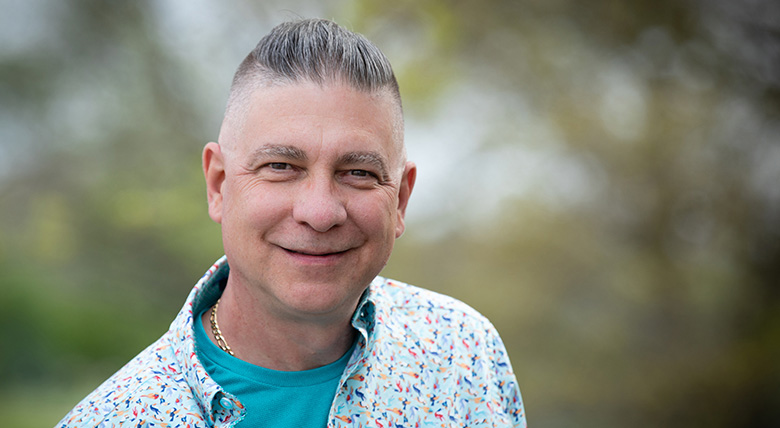
Puzzling symptoms reveal a benign pituitary tumor
For years, Michael was always on the go for work. But gradual health changes began to slow him down until he finally sought answers from his doctor.
Michael travels frequently for his job as a business development manager. On travel days, he often wakes up at 4:30 AM, hops on a plane and works all day, dines with clients in the evening, and finally gets to sleep in his hotel room by midnight.
He never tired of this on-the-go lifestyle, until the fatigue started. When the weekends came, rather than getting tasks done around the house and going out with his wife, Michael’s exhaustion forced him to just lie around. Then came 30 pounds of weight gain and pain in his hands and feet.
“It was like I had done a brutal workout or had gone for a long run, but I hadn’t actually done anything,” Michael said. “I was a healthy, 51-year-old with no known medical conditions, and it had become obvious that something was wrong.”
Looking for answers from multiple specialists
With his puzzling symptoms, Michael went to his doctor at AHN. When tests came back with extremely low levels of testosterone, Michael was referred to the AHN Pituitary Center where he met with Saira Khan, MD, an endocrinologist, and Jody Leonardo, MD, a neurosurgeon.
An MRI revealed a benign (noncancerous) tumor resting on his pituitary gland, at the base of his brain, just behind the eyes.
“Although pituitary tumors are usually benign, each patient’s is distinct and can lead to a multitude of problems,” Dr. Khan said. “Some tumors disturb a patient’s vision while others secrete hormones that affect how the whole body functions. That’s why having a team of doctors from several different disciplines is so beneficial in treating these patients.”
Quickly getting back to normal
Matthew Straka, MD, an ear nose and throat (ENT) specialist, and Dr. Leonardo performed an endoscopic pituitary surgery to remove Michael’s tumor. The noninvasive procedure is done through the patient’s nose, which means there are no incisions on the face.
“Endoscopic endonasal surgery offers patients less postoperative discomfort, fewer complications, and a shorter recovery period,” Dr. Leonardo said.
Michael was discharged two days after surgery and was virtually pain-free. His team from the AHN Pituitary Center saw him at a follow-up visit, where they told him the surgery was successful and his hormone levels had normalized.
“I felt like myself again relatively quickly,” he said. “I had no issues with recovery, had a one-year follow-up, and that was it.”
Offering highly specialized and personalized care
Though pituitary tumors are relatively rare — with around 10,000 tumors diagnosed in the U.S. each year — they require personalized care from a variety of specialists. The AHN Pituitary Center includes physicians from endocrinology, neurosurgery, neuro-oncology, ophthalmology, otolaryngology, radiation oncology, and radiology.
If you have puzzling symptoms like Michael did, the experts at the AHN Neuroscience Institute can help you or your loved one find answers and get back to enjoying life. Call 412-359-8246 or request an appointment to learn more about the AHN Pituitary Center.





